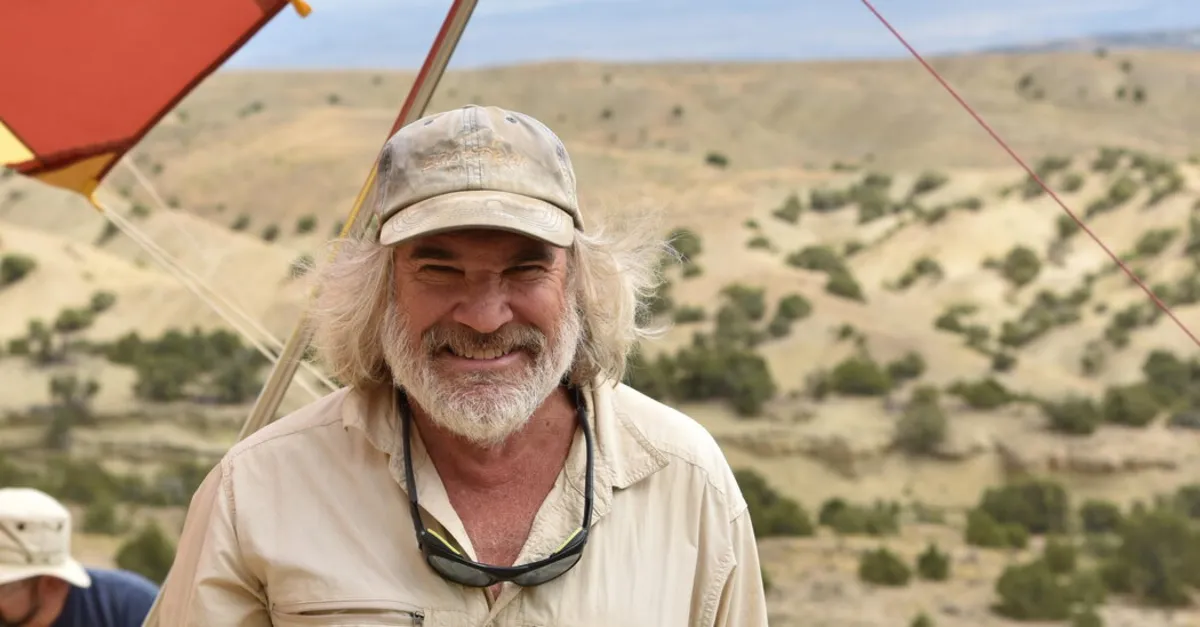
Mark Norell, a renowned paleontologist known for his groundbreaking research on the evolutionary connections between dinosaurs and birds, passed away on Tuesday in Manhattan at the age of 68. His brother, Todd Norell, confirmed that Dr. Norell died due to heart failure while hospitalized. As the former chairman of the American Museum of Natural History’s division of paleontology, Dr. Norell made significant contributions to our understanding of the ancient world through his extensive fieldwork and research.
Throughout his illustrious career, Dr. Norell embarked on expeditions across the globe, including fossil hunts in China, Chile, Argentina, Romania, the Sahara, and Mongolia. His primary research focused on the evolutionary links between theropod dinosaurs—bipedal carnivores—and birds. This pivotal research culminated in the 2016 exhibition “Dinosaurs Among Us,” which he curated at the museum. During this exhibition, Dr. Norell famously asserted, “They certainly are [descendants of dinosaurs]. Just like humans are a kind of primate, birds are a kind of dinosaur,” emphasizing the continuity of life through evolution.
In 1990, after a long period during which Western paleontologists were restricted from exploring Mongolia, Dr. Norell and his colleague Michael Novacek led a team from the American Museum of Natural History into the Gobi Desert. They collaborated with the Mongolian Academy of Sciences, uncovering a treasure trove of fossils. Dr. Norell described the Gobi as “a paradise for paleontologists,” noting that its eroding terrain often revealed nearly complete skeletons that had previously been known only from minimal fossil records.
In 1993, during one of their expeditions, Dr. Norell made a remarkable discovery: a cracked-open oviraptor egg containing a curled-up embryo that was close to hatching. This finding, along with the discovery of an adult oviraptor fossil brooding over a nest, underscored the profound evolutionary connections between dinosaurs and modern birds. “A lot of the features of the skeletons of oviraptors found at that site,” he noted, “showed the connections in many structural aspects of skulls, limbs, claws, brains, and sensory systems that are similar to birds.”
Dr. Norell’s adventurous spirit and rugged survival skills in the harsh conditions of the Gobi Desert were well-documented. He was featured on the cover of Sports Afield in 1999, where he was dubbed the “Obi-Wan Kenobi of ‘dirtbagging’” for his minimalist camping style. He preferred to sleep on the ground and often changed clothes only once during extended expeditions, emphasizing practicality over luxury.
Born on July 26, 1957, in St. Paul, Minnesota, Dr. Norell spent his formative years in Downey, California. His father, Don Norell, was a structural engineer, while his mother, Helen Soltau Norell, managed the household. From a young age, Dr. Norell displayed a keen interest in the natural world, collecting insects, rocks, and fossils. His passion for paleontology was nurtured by his science teacher, who introduced him to the paleontology department at the Los Angeles County Museum.
Dr. Norell earned a bachelor’s degree in zoology from California State University, Long Beach, in 1980, followed by a master’s degree in biology from San Diego State University in 1983. He then pursued a master’s in philosophy and a Ph.D. in biology at Yale University, completing his doctoral studies in 1988. He began his career at the American Museum of Natural History in 1989 as an assistant curator, later becoming a curator and chairman of the paleontology division.
As a prolific curator, Dr. Norell contributed to numerous exhibitions, including “Dinosaurs of Jurassic Park” and “Fighting Dinosaurs: New Discoveries from Mongolia,” showcasing the fossilized remains of dinosaurs preserved in dramatic poses. His published works included children’s books like “Searching for Velociraptor” and “A Nest of Dinosaurs: The Story of Oviraptor,” which aimed to engage younger audiences in the wonders of paleontology.
Dr. Norell is survived by his daughter, Inga Pan Norell, and his brother. His wife, Vivian Pan, who passed away in 2023, was a distinguished geologist with a Ph.D. in geochemistry. Dr. Norell’s rich legacy in paleontology and his dedication to advancing scientific understanding will continue to inspire future generations of scientists and enthusiasts alike. His passion for exploring the connections between ancient life and modern birds has left an indelible mark on the field of paleontology.